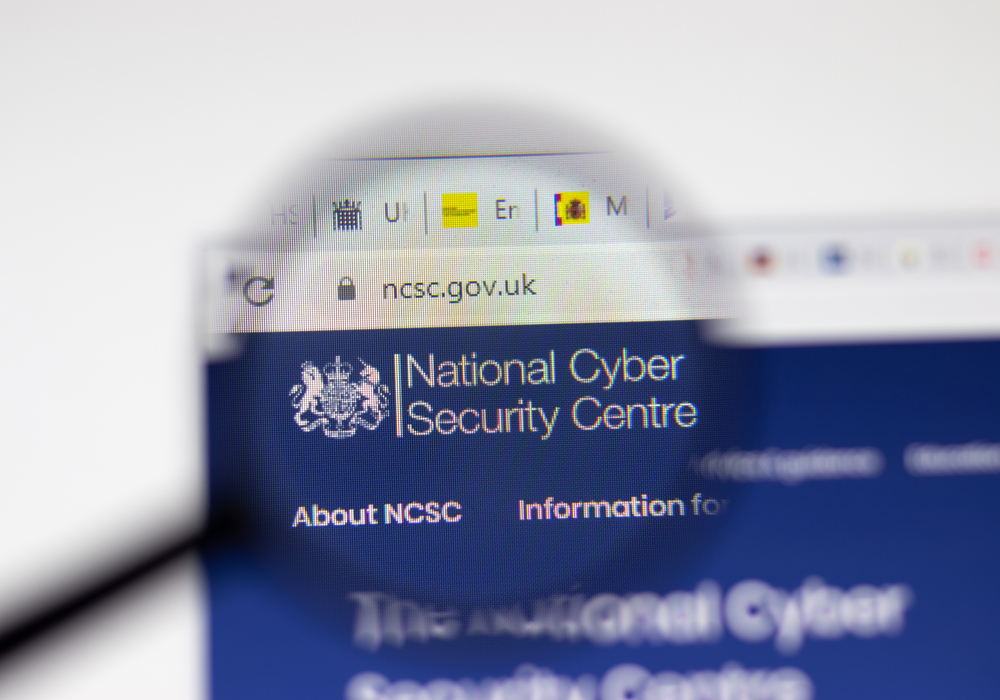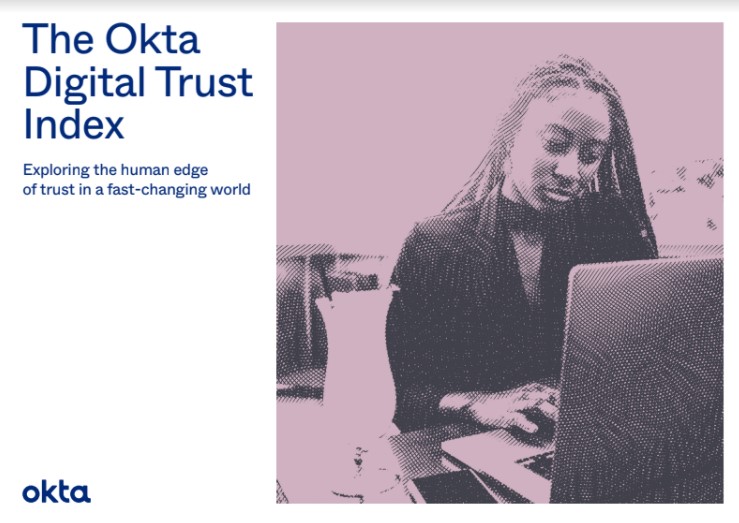NCSC: COVID-19 vaccines were prime target for hackers in 2021
The GCHQ's cyber arm says 20% of cyber attacks this year targeted the health sector and key organisations involved in the vaccine rollout


The National Cyber Security Centre (NCSC) has said it played a crucial role in the COVID-19 vaccine delivery this year, intervening in a record number of cyber incidents and protecting key figures in the health sector.
That's according to findings in a new report released by GCHQ's cyber arm Wednesday morning. The NCSC handled 777 incidents this year, up from 723 in 2020, and 20% of these were attacks on the health sector and key organisations in the vaccine rollout.
Researchers at the University of Oxford were among those who received help from the NCSC this year. The team working on the Oxford/AstraZeneca vaccine called in cyber security experts after they were targeted with ransomware which had the potential to significantly disrupt the UK's pandemic response.
Elsewhere, other staff working in the health sector and on vaccine delivery were also protected by the NCSC's Protective Domain Name System service. The tool prevented staff from accessing malicious domains and blocked 4.4 billion potentially harmful interactions, it said.
The NCSC's Active Cyber Defence (ACD) programme eliminated 2.3 million cyber-enabled commodity campaigns including 442 phishing campaigns that used NHS branding and 80 mobile apps hosted outside of the usual, official app stores.
The ACD is a suite of free-to-use tools provided to organisations by the NCSC to protect against the most common cyber attacks that strike UK businesses and other organisations, rather than targeted attacks that require more bespoke attention.
"The growth in the number of incidents handled by the NCSC this year is partially reflected in the organisation’s ongoing work to proactively identify threats through the work of its Threat Operations and Assessment teams," said the NCSC.
Get the ITPro daily newsletter
Sign up today and you will receive a free copy of our Future Focus 2025 report - the leading guidance on AI, cybersecurity and other IT challenges as per 700+ senior executives
The report also echoed other corners of the industry in saying ransomware detections have once again increased on the previous year
One of the differentiating factors of ransomware activity in 2021 was the growing real-world impact of ransomware attacks on businesses and other organisations, the NCSC said.
With the JBS Foods attack, food supplies were affected and the Colonial Pipeline hack saw local fuel prices increase. Consumers were unable to complete on property purchases due to the Simplify Group and Hackney Borough Council cyber attacks. The latter also saw entire communities locked out of public services in an incident that took months and millions of pounds to recover from.
RELATED RESOURCE

"We will work with the FCDO to put cyber power at the heart of the UK’s foreign policy agenda, strengthening our collective security, ensuring our international commercial competitive advantage and shaping the debate on the future of cyberspace and the internet," said Lindy Cameron, CEO at the NCSC.
"We will need to reinforce our core alliances and lead a compelling campaign aimed at middle-ground countries to build stronger coalitions for deterrence and counter the spread of digital authoritarianism," she added. "This will involve better connecting our overseas influence to our domestic strengths, leveraging our operational and strategic communications expertise, thought leadership, trading relationships and industrial partnerships as a force for good."
The NCSC also expressed an interest in ramping up collaborative efforts from international law enforcement agencies to target ransomware operators overseas, namely in Russia and China, following related talks at the G7 summit held in Cornwall earlier this year.
Double extortion ransomware attacks which first rose to prominence in 2020, the NCSC said, are "almost certain to grow" next year with a high chance it will claim more victims in the UK.
Also expected to see an increase are supply chain attacks. Given the critical nature of the targets, attackers are highly likely to target this area again, the NCSC said, adding that successful compromises can lead to a highly effective campaign thanks to the global reach of supply chains.
“This year we have seen countless examples of cyber security threats: from state-sponsored activity to criminal ransomware attacks. It all serves to remind us that what happens online doesn’t stay online – there are real consequences of virtual activity," said Jeremy Fleming, director at GCHQ.
“In the face of rising cyber attacks and an evolving threat, this year’s NCSC’s Annual Review shows that world-class cyber security, enabled by the expertise of the NCSC as part of GCHQ, continues to be vital to the UK’s safety and prosperity.”

Connor Jones has been at the forefront of global cyber security news coverage for the past few years, breaking developments on major stories such as LockBit’s ransomware attack on Royal Mail International, and many others. He has also made sporadic appearances on the ITPro Podcast discussing topics from home desk setups all the way to hacking systems using prosthetic limbs. He has a master’s degree in Magazine Journalism from the University of Sheffield, and has previously written for the likes of Red Bull Esports and UNILAD tech during his career that started in 2015.
-
 Global cybersecurity spending is set to rise 12% in 2025 – here are the industries ramping up investment
Global cybersecurity spending is set to rise 12% in 2025 – here are the industries ramping up investmentNews Global cybersecurity spending is expected to surge this year, fueled by escalating state-sponsored threats and the rise of generative AI, according to new analysis from IDC.
By Ross Kelly Published
-
 Google Cloud is leaning on all its strengths to support enterprise AI
Google Cloud is leaning on all its strengths to support enterprise AIAnalysis Google Cloud made a big statement at its annual conference last week, staking its claim as the go-to provider for enterprise AI adoption.
By Rory Bathgate Published
-
 ‘Phishing kits are a force multiplier': Cheap cyber crime kits can be bought on the dark web for less than $25 – and experts warn it’s lowering the barrier of entry for amateur hackers
‘Phishing kits are a force multiplier': Cheap cyber crime kits can be bought on the dark web for less than $25 – and experts warn it’s lowering the barrier of entry for amateur hackersNews Research from NordVPN shows phishing kits are now widely available on the dark web and via messaging apps like Telegram, and are often selling for less than $25.
By Emma Woollacott Published
-
 Healthcare systems are rife with exploits — and ransomware gangs have noticed
Healthcare systems are rife with exploits — and ransomware gangs have noticedNews Nearly nine-in-ten healthcare organizations have medical devices that are vulnerable to exploits, and ransomware groups are taking notice.
By Nicole Kobie Published
-
 Alleged LockBit developer extradited to the US
Alleged LockBit developer extradited to the USNews A Russian-Israeli man has been extradited to the US amid accusations of being a key LockBit ransomware developer.
By Emma Woollacott Published
-
 February was the worst month on record for ransomware attacks – and one threat group had a field day
February was the worst month on record for ransomware attacks – and one threat group had a field dayNews February 2025 was the worst month on record for the number of ransomware attacks, according to new research from Bitdefender.
By Emma Woollacott Published
-
 CISA issues warning over Medusa ransomware after 300 victims from critical sectors impacted
CISA issues warning over Medusa ransomware after 300 victims from critical sectors impactedNews The Medusa ransomware as a Service operation compromised twice as many organizations at the start of 2025 compared to 2024
By Solomon Klappholz Published
-
 The UK cybersecurity sector is worth over £13 billion, but experts say there’s huge untapped potential if it can overcome these hurdles
The UK cybersecurity sector is worth over £13 billion, but experts say there’s huge untapped potential if it can overcome these hurdlesAnalysis A new report released by the DSIT revealed the UK’s cybersecurity sector generated £13.2 billion over the last year
By Solomon Klappholz Published
-
 Warning issued over prolific 'Ghost' ransomware group
Warning issued over prolific 'Ghost' ransomware groupNews The Ghost ransomware group is known to act fast and exploit vulnerabilities in public-facing appliances
By Solomon Klappholz Published
-
 The Zservers takedown is another big win for law enforcement
The Zservers takedown is another big win for law enforcementNews LockBit has been dealt another blow by law enforcement after Dutch police took 127 of its servers offline
By Solomon Klappholz Published